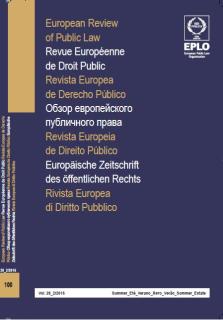
Between Proportional and Majority Vote
The German Electoral System in Need of Reform
Ulrich Karpen
Prof. Dr. jur., University of Hamburg Law School, International Association of Legislation
The German Electoral Law is complex, but just, if one wants primarily to find a compromise between proportional representation and majority vote. Many voters would not understand the details, but they are used to the system and have faith in its correctness and functionality. Politicians and constitutional scholars and lawyers are, however, concerned about the role of the Federal Constitutional Court in election legislation. The Court is operating on a slim constitutional basis, since the Constitution took no decision, either for the majority (First-past-the-post) system or for proportional representation. Hence the Electoral Law is statutory law. From the beginning of the Federal Republic of Germany in 1949 the law suffered more than 22 amendments, most of them required by Constitutional Court's Decisions. Many voices demand a more transparent electoral system and an improved balance of separation of powers in favor of the legislature.
Le droit électoral allemand est complexe mais juste, si l'on veut primordialement trouver un compromis entre la représentation proportionnelle et le scrutin majoritaire. Nombre d'électeurs ne comprennent pas les détails mais ils sont habitués au système et ont confiance dans sa justesse et sa fonctionnalité. Les hommes politiques et les spécialistes de droit constitutionnel et les avocats s'inquiètent cependant du rôle de la Cour constitutionnelle fédérale dans la législation électorale. La Cour opère sur une base constitutionnelle étroite puisque la Constitution n'a pas pris de décision en faveur du système majoritaire (scrutin majoritaire uninominal à un tour) ou de la représentation proportionnelle. Par conséquent, la loi électorale est du droit commun. Depuis le début de la République fédérale d'Allemagne en 1949, la loi a subi plus de 22 amendements, la plupart requis par des arrêts de la Cour constitutionnelle. Des voix nombreuses s'élèvent pour demander un système électoral plus transparent et un meilleur équilibre de la séparation des pouvoirs en faveur de l'organe législatif.





















